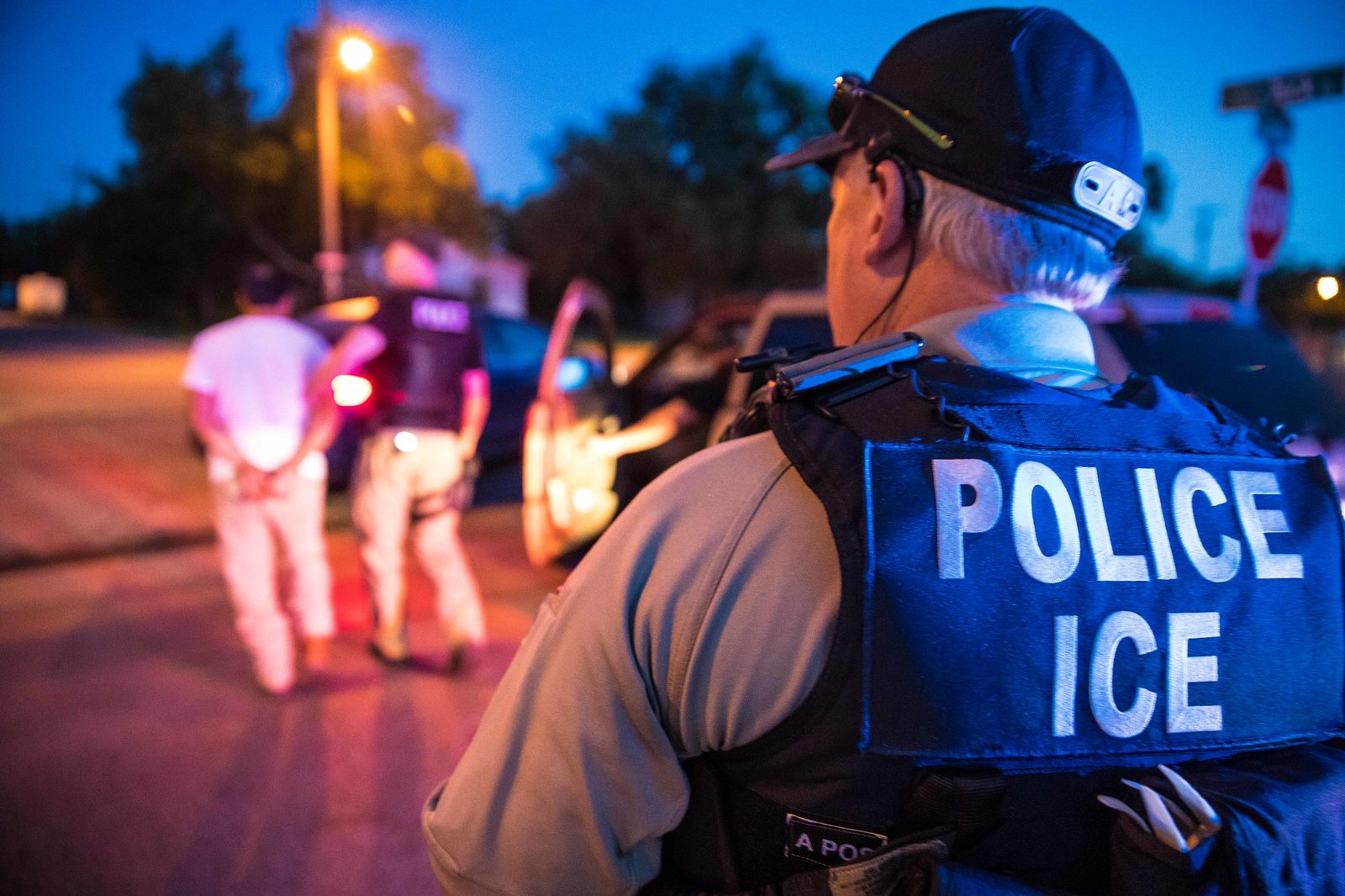American Civil Liberties Union
Trump’s Sweeping Move: Fast-Track Deportations Launch Nationwide Without Court Hearings

The Trump administration has reinstated a controversial border security policy that could lead to mass deportations without judicial oversight. Legal experts are expressing alarm, particularly regarding the implications for Latino communities in Arizona.
On Friday, the White House brought back a policy established in 2019 that accelerates deportation processes for immigrants unable to prove more than two years of continuous presence in the U.S. This expedited removal framework means those detained are not entitled to a court hearing and can be immediately expelled from the country.
Previously, under the Biden administration, the scope of expedited removals was limited to individuals found within 100 miles of the border who also had less than two weeks of residency. The recent policy expansion allows for broader deportations across the entire nation, raising fears among immigrant advocates.
Critics highlight that this measure represents a significant escalation in the Trump administration’s aggressive immigration agenda. It follows a series of anti-immigration actions, including efforts to block asylum applications and undermine birthright citizenship. Legal experts, like Laura Belous, warn that the policy sets a dangerous precedent, enabling potential racial profiling and arbitrary detentions.
Lynn Marcus, director of the Immigration Law Clinic at the University of Arizona, noted that the new expedited removal approach undermines due process for all individuals, leading to concerns over wrongful deportations. Historical evidence backs these fears; cases of U.S. citizens and long-term residents facing wrongful detention and expulsion have previously emerged during heightened enforcement actions.
In Arizona, many who lack legal status have resided in the country for substantial periods. According to the Migration Policy Institute, approximately 273,000 immigrants live in the state without authorization, with 72% having lived in the U.S. for over a decade. The implications of rapid deportation processes mean that legal residents and U.S. citizens could also fall victim to erroneous removals.
Marcus indicated that the burden of proof lies heavily on individuals, who must demonstrate their eligibility for protection against expedited removal but may not have sufficient documentation available at the time of questioning. This creates a heightened risk of unjust deportations, particularly in a racially biased enforcement climate.
The racial profiling concerns are exacerbated by the expansion of the expedited removal policy. Marcus pointed out that immigration enforcement has historically targeted individuals based on appearance, disproportionately affecting Hispanic residents in Arizona.
Throughout the enforcement of immigration laws, disparities have emerged. An analysis of traffic stops by the Maricopa County Sheriff’s Office indicated that Black and Hispanic individuals faced higher rates of arrest compared to their white counterparts, which may extend to immigration inquiries. The implication is clear: as enforcement increases, so does the risk for unjust treatment of vulnerable populations.
Concerns extend beyond just undocumented immigrants; Native American individuals in Arizona also face heightened scrutiny. Leaders from the Navajo Nation have reported incidents where indigenous Arizonans were incorrectly questioned by immigration officials about their citizenship status. The historical context adds gravity, as Native communities along the border have long faced issues related to identity and sovereignty.
As the policy unfolds, the Florence Immigrant and Refugee Rights Project anticipates an uptick in cases requiring legal assistance. Belous emphasized the wide-reaching ramifications of the reinstatement, warning that it might adversely impact countless lives by removing established due process protections.
For individuals facing expedited removal, options exist, albeit limited. Asylum-seeking remains a pathway, but applicants encounter stringent evaluations. To qualify for cancellation of removal, the individual must demonstrate long-term residency, familial hardship, and good moral character, a challenging feat given existing bureaucratic hurdles.
Unquestionably, the reinstatement of expedited removals marks a pivotal moment in U.S. immigration policy. While advocacy groups prepare for a potential surge in apprehensions and wrongful deportations, legal challenges are mounting against the administration’s actions. A recent lawsuit filed by the American Civil Liberties Union aims to address the constitutional validity of the policy’s expansion.
Amid these developments, Arizona’s leadership is showing signs of resistance. Leaders such as Attorney General Kris Mayes and Governor Katie Hobbs have openly criticized the push for mass deportations and the formation of detention facilities, vowing to protect immigrant rights in the state.


















